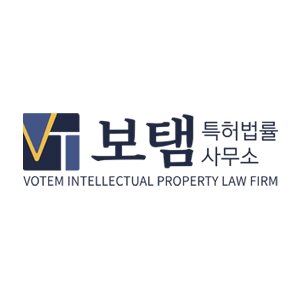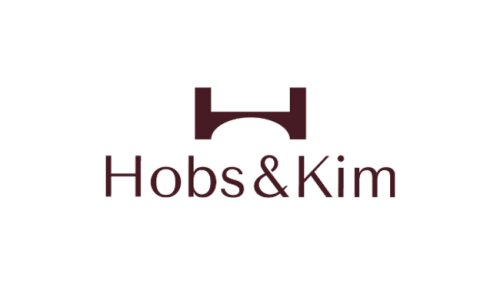Best Franchising Lawyers in Seoul
Share your needs with us, get contacted by law firms.
Free. Takes 2 min.
List of the best lawyers in Seoul, South Korea
About Franchising Law in Seoul, South Korea:
Franchising in Seoul, South Korea is a popular business model where a franchisor grants a franchisee the rights to use their brand and business model in exchange for fees and royalties. The Franchise Act of South Korea governs franchising relationships and sets out the rights and obligations of the parties involved. It is essential for both franchisors and franchisees to understand the legal requirements and regulations surrounding franchising in Seoul to ensure compliance and protect their interests.
Why You May Need a Lawyer:
You may need a lawyer in franchising in Seoul, South Korea for various reasons:
- Reviewing and negotiating franchise agreements
- Resolving disputes between franchisors and franchisees
- Complying with local franchise laws and regulations
- Protecting intellectual property rights
- Advising on termination or renewal of franchise agreements
Local Laws Overview:
Key aspects of local laws relevant to franchising in Seoul, South Korea include:
- Franchise Act: regulates franchising relationships, including disclosure requirements and termination rights
- Intellectual Property Laws: protect trademarks, copyrights, and other intellectual property rights associated with franchises
- Consumer Protection Laws: ensure fair treatment of franchisees and transparency in franchise agreements
- Antitrust Laws: prevent anti-competitive behavior in the franchising industry
Frequently Asked Questions:
1. What is the legal definition of a franchise in South Korea?
A franchise in South Korea is defined as a business relationship where a franchisor grants a franchisee the right to operate under its brand and business model in exchange for fees and royalties.
2. Are there any disclosure requirements for franchisors in South Korea?
Yes, franchisors in South Korea are required to provide franchisees with a disclosure document outlining key information about the franchise, including financial statements, operating manuals, and other relevant details.
3. Can franchise agreements be terminated in South Korea?
Franchise agreements in South Korea can be terminated under specific circumstances, as outlined in the Franchise Act. It is essential to follow the legal procedures and requirements for termination to avoid disputes.
4. How are intellectual property rights protected in franchise relationships in South Korea?
Intellectual property rights, including trademarks and copyrights, are protected under South Korean law. Franchise agreements should clearly outline the use and protection of intellectual property rights by both parties.
5. What are the obligations of franchisees in South Korea?
Franchisees in South Korea are responsible for adhering to the terms of the franchise agreement, maintaining brand standards, paying fees and royalties, and following operational guidelines provided by the franchisor.
6. How can a lawyer help in resolving franchise disputes in South Korea?
A lawyer with experience in franchising law can assist in resolving disputes between franchisors and franchisees through negotiation, mediation, or litigation. They can also provide legal advice on rights and obligations under the franchise agreement.
7. Are there any restrictions on the transfer of franchise agreements in South Korea?
Yes, there are restrictions on the transfer of franchise agreements in South Korea. Franchise agreements typically require the consent of the franchisor for any transfer or assignment to a third party.
8. Can foreign companies franchise in South Korea?
Foreign companies can franchise in South Korea, but they must comply with local laws and regulations governing franchising relationships. It is advisable to seek legal advice to navigate the complexities of franchising in a foreign market.
9. What are the penalties for non-compliance with franchising laws in South Korea?
Non-compliance with franchising laws in South Korea can result in fines, penalties, or legal action. It is crucial for both franchisors and franchisees to ensure compliance with local laws to avoid legal consequences.
10. How can I find a reliable lawyer for franchising in Seoul, South Korea?
You can find a reliable lawyer for franchising in Seoul, South Korea by seeking recommendations from other business owners, contacting legal associations, or conducting online research to find reputable law firms with experience in franchising law.
Additional Resources:
For additional resources related to franchising in Seoul, South Korea, you can contact the Korean Franchise Association (KFA) or the Korea Fair Trade Commission (KFTC) for guidance and support in understanding local laws and regulations governing franchising relationships.
Next Steps:
If you require legal assistance in franchising in Seoul, South Korea, it is advisable to consult with a qualified lawyer who specializes in franchising law. They can provide expert advice and guidance on navigating the legal complexities of franchising relationships and ensuring compliance with local laws to protect your interests.
Lawzana helps you find the best lawyers and law firms in Seoul through a curated and pre-screened list of qualified legal professionals. Our platform offers rankings and detailed profiles of attorneys and law firms, allowing you to compare based on practice areas, including Franchising, experience, and client feedback.
Each profile includes a description of the firm's areas of practice, client reviews, team members and partners, year of establishment, spoken languages, office locations, contact information, social media presence, and any published articles or resources. Most firms on our platform speak English and are experienced in both local and international legal matters.
Get a quote from top-rated law firms in Seoul, South Korea — quickly, securely, and without unnecessary hassle.
Disclaimer:
The information provided on this page is for general informational purposes only and does not constitute legal advice. While we strive to ensure the accuracy and relevance of the content, legal information may change over time, and interpretations of the law can vary. You should always consult with a qualified legal professional for advice specific to your situation.
We disclaim all liability for actions taken or not taken based on the content of this page. If you believe any information is incorrect or outdated, please contact us, and we will review and update it where appropriate.














